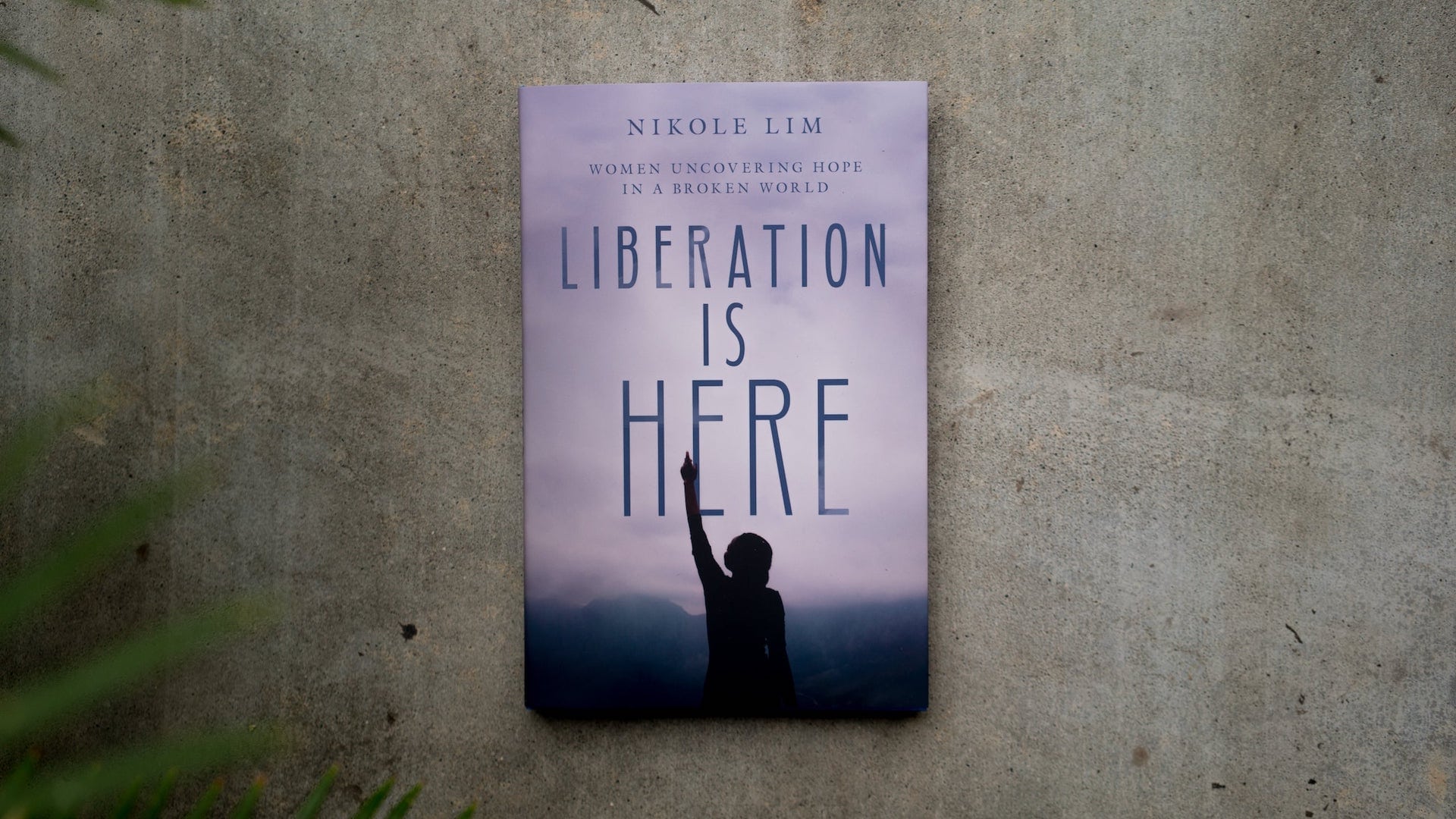Liberation Is Here: Women Uncovering Hope in a Broken World
Nikole Lim IVP, 184 pages
It takes courage to tell your whole story. Our personal narratives are a fascinating blend of miracles and desolation, despair and hope, trauma and restoration. The vulnerability required to invite someone else into the intimate moments that formed you, broke you, and sustained you should always be treated as a precious gift. Though we all have a story to tell, how often do we think critically about our roles as listeners?
Determined to offer a new perspective on depictions of people of color and people in poverty, photographer and documentary filmmaker Nikole Lim tastefully transports readers on an illustrative journey into the lived realities of three African women who are survivors of sexual violence—Nekesa, Mara, and Mubanga. Leveraging her camera as a means to disengage her own trauma while attending to the pain of others, Lim attempts to maintain a sense of disconnection from the narratives of suffering. She tries to convince herself that she is there to fix a problem rather than be transformed by the resilience, hope, and faith in the testimonies of the women she interviews. Interspersing photos between the survivors’ narratives, alongside her own internal evolution, Lim powerfully challenges the reader’s preconceptions of who is truly in bondage and who God can use to bring about liberation.
Couched in intimate descriptions of the intersectionality of immigration, sexual violence, poverty, sexism, and familial expectations, Liberation Is Here invites readers to reflect on the process of healing outer wounds and inner loss as a community. Lim is both faithful and respectful in her descriptions of the traumatic realities of rape, incest, prostitution, and poverty in Kenya and Zambia. She provides context around circumstances leading to sexual violence that are often not discussed in the Western church.
God often uses those we might deem inferior and in need of resources to be the ones who liberate us.
Women living in poverty experience overlapping systems of oppression, even while doing everyday tasks necessary for survival. Walking to school, collecting water for the household, and using the latrine all come with additional risks. Many women have increased odds of experiencing sexual violence due to social stigmas that keep them isolated, suppressed, disenfranchised, and economically restricted. Expectations of an early marriage, inadequate access to education, and corruption within the criminal justice system often absolve perpetrators of any consequences for rape. Due to gender-based sanitation access and deteriorating mental health conditions, women around the world are placed in situations where they are forced to make impossibly difficult circumstances livable.
Lim poses a difficult challenge for the American church. When we hear God calling us into stories of suffering, we should truly be open to a ministry of presence. God often counterculturally uses those we might deem inferior and in need of resources to be the ones who liberate us. The American church should be willing to put aside our savior complex mentalities and truly believe that the same God who is at work in our own communities is also present in suffering around the world. May we resist the temptation to hide, remain disconnected, or busy ourselves with “fixing the problem” as a method of self-protection from the transformative power of stories that manifest into testimonies.
Liberation Is Here has many important messages, but perhaps the most salient takeaway is that we ought to enter into stories of suffering with humility, remembering that each of us is in need of dignity, hope, liberation, and restoration. These gifts come not from human deeds but from the redeeming grace of our Lord and Savior. If I truly believe your liberation is bound with mine, our liberation will influence both the way I tell my own story and how I listen to and engage stories of others’ suffering. If I truly believe your liberation is bound with mine, our liberation will form my understanding of the right to dignity for all women. If I truly believe your liberation is bound with mine, I am motivated to be open to experiencing hope in dark places. If I truly believe your liberation is bound with mine, my narrow understanding of who is worthy of restoration will be challenged.
Dignity. Hope. Liberation. Restoration.
To readers willing to actively listen and be present in the discomfort of sexual trauma, Lim’s Liberation Is Here offers necessary moments of reflection as a listener, while also reminding us to be open to the fact that God may use the testimonies of others to bring about the liberation we seek.














